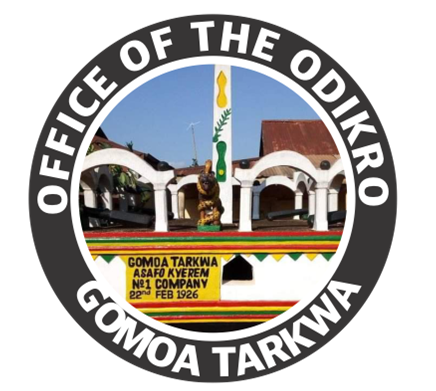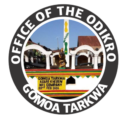Historical Significance of the Office of the Odikro
The Office of the Odikro in Gomoa Tarkwa Township is steeped in historical significance, tracing its origins back to the early days of the settlement. The term “Odikro” originates from the Akan language, where “Odi” means to rule and “Kro” means town, essentially translating to the ruler of the town. The role of the Odikro was established as a means of local governance, serving as the central figure in maintaining order, overseeing communal activities, and safeguarding the cultural heritage of the community.
Historically, the Odikro played a crucial role in conflict resolution, land disputes, and the administration of justice. The office was also responsible for the organization of festivals, traditional ceremonies, and other cultural events that reinforced the community’s identity and unity. The Odikro’s duties extended to the spiritual realm, where they acted as intermediaries between the ancestors and the living, ensuring that the spiritual well-being of the township was maintained.
Over the years, the office of the Odikro has evolved, adapting to the changing dynamics of modern governance. While the traditional responsibilities remain integral, the contemporary Odikro now engages with local government officials, NGOs, and other stakeholders to address developmental issues such as education, healthcare, and infrastructure. This adaptation has not diminished the cultural and historical significance of the office but has rather enhanced its relevance in the modern context.
Notable individuals who have held the position of Odikro in Gomoa Tarkwa have left indelible marks on the community. Their leadership, wisdom, and dedication to the welfare of the township have been instrumental in shaping its history. The office continues to be a symbol of continuity, bridging the past with the present, and ensuring that the rich cultural heritage of Gomoa Tarkwa is preserved for future generations.
Functions and Influence of the Odikro in Contemporary Gomoa Tarkwa
The Odikro of Gomoa Tarkwa holds a pivotal role in the township’s modern landscape, blending traditional leadership with contemporary responsibilities. One of the primary functions of the Odikro today is conflict resolution. The Odikro serves as a mediator in disputes, leveraging extensive knowledge of local customs and traditions to facilitate peaceful solutions. This role is crucial in maintaining harmony within Gomoa Tarkwa, ensuring that community disputes do not escalate into larger conflicts.
In addition to conflict resolution, the Odikro is a key figure in community leadership. The Odikro’s influence extends to various aspects of local governance, working in tandem with both traditional governing structures and modern political entities. This dual interaction enables the Odikro to represent the interests of the people effectively, bridging the gap between ancient practices and contemporary governance. The Odikro’s leadership is vital in decision-making processes that affect the township, from land disputes to local development strategies.
Cultural preservation is another significant function of the Odikro. The Odikro plays an instrumental role in safeguarding the cultural heritage of Gomoa Tarkwa, organizing traditional festivals and ceremonies that reinforce community identity and values. These cultural activities not only preserve the township’s rich history but also foster a sense of belonging among residents.
The Odikro’s involvement in local development projects is notable. By collaborating with governmental and non-governmental organizations, the Odikro champions initiatives that improve infrastructure, healthcare, and education within the community. Educational programs, in particular, benefit from the Odikro’s advocacy, as efforts are made to ensure that the youth of Gomoa Tarkwa have access to quality education and opportunities for personal growth.
However, the office of the Odikro faces numerous challenges. Balancing traditional authority with modern administrative demands can be complex. Strategies to overcome these challenges include fostering open communication channels between the Odikro and other political leaders, as well as engaging the community in participatory decision-making processes. These approaches help to maintain the relevance and effectiveness of the Odikro’s role in a rapidly changing environment.
Overall, the Odikro’s impact on Gomoa Tarkwa’s social cohesion and growth is profound. By upholding cultural traditions, mediating conflicts, and spearheading development projects, the Odikro significantly contributes to the township’s stability and progress, ensuring a cohesive and thriving community.


